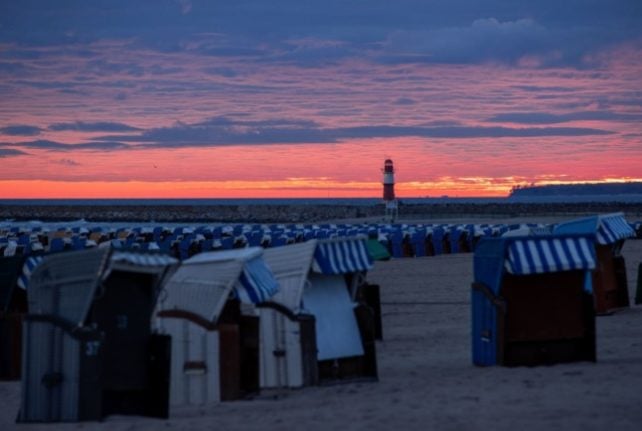The tourism industry has been unable to operate for the last seven months. But on Friday hotels, guest houses, holiday homes and campsites will once again be able to welcome guests – though only for locals this week.
However from Friday June 4th, the state will open up its borders to holidaymakers from across the country and a week later, from June 11th onwards, day-trippers will also be welcome.
The state will also drop its controversial policy to restrict entry to those with second homes, mobile homes and boat owners.
Furthermore another rule, whereby unvaccinated children were not allowed to travel with their families for holidays in Mecklenburg Western-Pomerania, will also now be reversed.
READ ALSO: The German state that’s open to daytrippers – but not children
As the series of coronavirus lockdowns over the past 14 months have been so difficult for the industry, the reopening of the tourism sector is a cautious one. The first stage of opening means that only residents of Mecklenburg-Western Pomerania will be allowed to go on holiday in the coastal state.
The restarting of the tourism industry comes as the numbers of coronavirus infections continue to fall significantly across the country.
With just under 20 new infections per 100,000 residents, the northeastern state has the lowest seven-day incidence rate in Germany, according to the Robert Koch Institute (RKI).
Originally, the plan was for the holiday season to begin for residents on June 7th, and for those coming from outside the state on June 14th.
For members of the tourism industry, who had long been yearning to reopen, the accelerated opening came as a surprise. This means that some holiday venues will not open immediately on Friday as they did not have enough time to prepare.
Tourism – with restrictions
Those wanting to escape to Mecklenburg Western-Pomerania for their vacation will need to test negative for Covid-19 before travelling, and then subsequently be tested every three days during their trip.
The tourism industry is doubtful that test centres will be prepared for the rush of tourists over the next few weeks. According to Lars Schwarz, the president of the German Hotel and Restaurant Association, testing capacities will need to be tripled in order for the reopening to go smoothly.
Based on data gathered by the state tourism board, the holiday sector in Mecklenburg-Western Pomerania is already booked up to 75 percent capacity. Last year, an unusually good high and late summer season were able to partly compensate for losses in the spring.
This time around, however, the tourism sector has been completely closed since November 2020, when all of Germany entered a shutdown amid rising coronavirus figures.



 Please whitelist us to continue reading.
Please whitelist us to continue reading.
Member comments